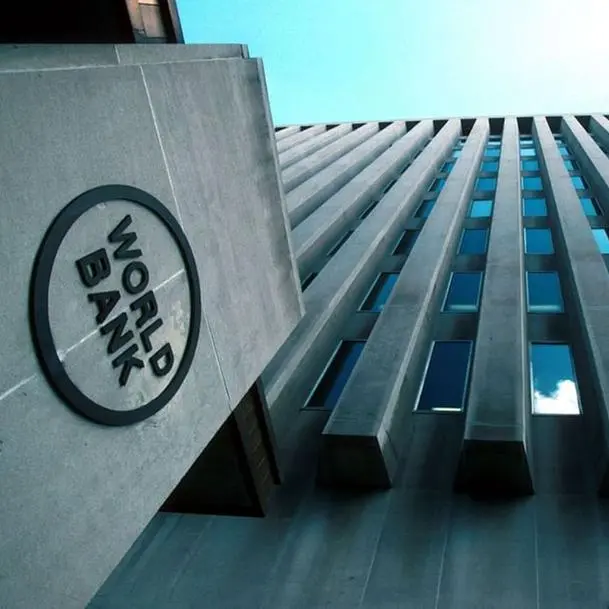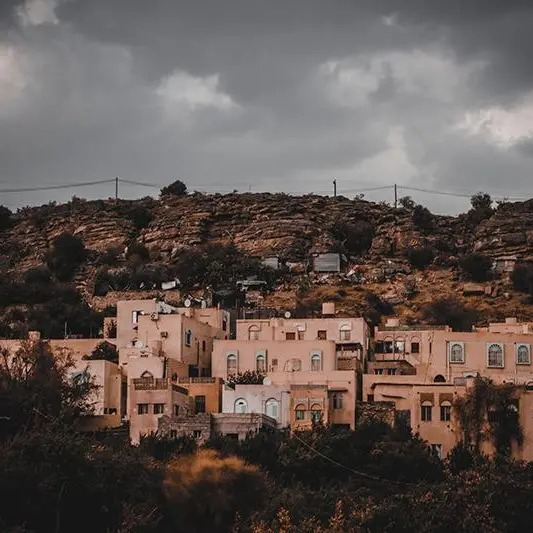PHOTO
A breakfast briefing organised by the British Egyptian Business Association (BEBA) on Wednesday convened real estate and banking leaders to discuss the challenges and opportunities for Egypt to become a global destination for second homes, similar to Greece, Cyprus, Turkey, and Dubai.
The panel comprised Hisham Shoukry, Chairperson of Real Estate Export Council and Founder and CEO of Roya Developments; Ibrahim El Missiri, CEO of Soma Bay Development Company; Mohamed Kaoud, Associate Director Hotels & Tourism MENA of Colliers International; Zeinab Adel, Partner - Head of Egypt of Knight Frank Middle East and Tamer Yousri Ragheb, Head of Corporate Banking, Emirates NBD Egypt.
Karim Helal, President of Concord International Investment, moderated the discussion.
Panellists were unanimous about Egypt's potential as a global second home destination due to its warm weather, affordable cost of living, and cultural appeal for specific demographics like Europeans seeking winter sun and GCC residents desiring second homes. However, they also identified challenges, including bureaucratic hurdles, currency fluctuations, and infrastructure deficiencies.
Strategies for attracting foreign buyers
Hisham Shoukry credited Sharm El Sheikh and El Gouna for pioneering the concept of second homes for foreign buyers and investors in Egypt.
He noted that Egypt's unique advantage is its winter sun, unavailable in Turkey, Spain, Greece, Cyprus, or other Mediterranean countries. However, a lack of organisation, cohesive branding and strategic planning compared to the aforementioned second-home destinations have stymied Egypt's efforts to achieve global prominence.
"Turkey, Greece, and Cyprus generate an estimated $15 billion to $16 billion annually from the sale of second homes to foreign buyers," he said.
Shoukry argued that through better planning and execution of its second home initiatives, Egypt could generate $10-$15 billion in revenue, potentially exceeding the income from the Suez Canal and strengthening its foreign currency reserves.
Emphasising the importance of adopting a country-focused approach, he stated that instead of concentrating solely on individual projects, promoting Egypt as an attractive destination for second-home buyers in target markets is essential. He also underscored positioning Egypt to tourists as a destination where they can potentially buy homes.
While acknowledging Egypt's unique advantage of the winter sun, Soma Bay's Ibrahim El Missiri highlighted the need to streamline processes for attracting foreign buyers. Furthermore, he said that in the absence of clear regulations and schemes, foreign buyers often face difficulties opening local bank accounts and aligning their medical insurance with local healthcare services.
He said to capitalise on its affordability compared to other destinations, Egypt needs to increase flight accessibility since air travel is the easiest and fastest means to reach the country.
Missiri noted the appeal of Red Sea destinations like El Gouna and Sharm El Sheikh for second-home buyers because their Tourism Development Authority status allows dollar-based property sales, mitigating double exchange rate complications. However, he acknowledged that payment uncertainties have created a 'wait-and-see' situation."
Fluctuating exchange rates
Fluctuating exchange rates pose pricing challenges for developers who sell properties directly to expatriates in dollars, according to both Missiri and Shoukry.
Shoukry said the significant difference between official and black market exchange rates forces developers to either rely on black market transactions or adjust their prices according to the cost of building materials (influenced by the dollar) rather than following the official exchange rate.
He said Egypt doesn't benefit from investments by Egyptian expatriates in local properties because funds often flow through unofficial channels. While official estimates suggest investments of 400 million to $500 million per annum, unofficial estimates indicate the actual amount could be as high as $3-4 billion.
While Egypt had passed a law less than a year ago to grant residency to foreigners buying properties in Egypt, Shoukry acknowledged that its implementation has been slow due to security concerns.
He also emphasised the issue of property registration in Egypt, noting that it stands out as the only country where individuals cannot register their units upon purchase. Enhancing this system is crucial to attracting more foreign buyers so they are not overburdened with paperwork.
Marketing and positioning
Knight Frank's Zeinab Adel said developers can drive foreign investment in second homes from Europe through strategic marketing, branding, and positioning. However, regional issues and competition from Dubai and Saudi Arabia in attracting wealthy retirees pose challenges. She also noted that Europeans are price and politically-sensitive.
Adel emphasised that Egypt could attract more second-home investments from the Gulf Cooperation Council (GCC) countries.
"Research shows that many high-net-worth individuals from the GCC already own properties in Egypt and are open to buying more, attracted by factors such as culture, language, and weather. However, they are unfamiliar with off-plan sales and instalment payment methods, preferring cash or foreign currency transactions."
She suggested a nuanced approach for attracting European buyers, especially pensioners seeking milder winters, by developing a new product focused on senior living with integrated medical facilities.
"The primary concern for potential European senior citizens is quality medical care, so the idea is to promote Egypt as a destination with excellent healthcare facilities akin to popular destinations like Cyprus or Greece," she said.
Adel recommended bringing in medical operators from target market countries to run health facilities in Egypt with a focus on brand reputation.
"This approach diverges from the physician-led preference common among Egyptians and could attract foreign seniors looking for high-quality medical care."
She said Egypt could consider the GCC's approach of investing in facilities first and then work on attracting investors rather than the reverse order.
Mohamed Kaoud of Colliers mentioned that the consultancy's clientele, which includes family offices, high-net-worth individuals, sovereign funds, and investment institutions, are attracted to Egypt's strategic location and the ongoing development projects in the country.
He said Colliers has been tasked with exploring real estate opportunities, particularly in the hotel and tourism sectors, and has successfully facilitated transactions for over 20 hotels, primarily located in Sharm El-Sheikh and Cairo. Additionally, they have several more transactions in progress, particularly in the North Coast region.
He urged developers to carefully consider the offerings they provide to their foreign buyers since second home sales are primarily about monetising quality of life.
"Monetising the quality of life through mixed-use and multiple-use developments serves as a crucial source of Foreign Direct Investment (FDI), stimulates business expansion impacting GDP, and fosters the creation of new communities," he noted.
Banker's notes
Tamer Ragheb of Emirates NBD Egypt emphasised that developers must adhere to international standards to appeal to buyers, adding that banks tend to step in only after the market is well-established.
"Banks can enable lending to buyers, either through personal loans or mortgages, but this depends on having the requisite regulatory infrastructure," he said, adding that second home mortgages for foreign buyers can be challenging due to the complexities of lending offshore and securing charge over the collateral.
He said a secondary market for loans to foreigners could be established in Egypt, provided units are available and the costs are known.
Ragheb also underlined the importance of establishing a marketplace that caters to Egyptian expatriates interested in investing in assets in Egypt in foreign currency.
Acknowledging the challenges of providing loans in dollars amidst current market conditions, he proposed that major developers collaborate with banks to establish reserve accounts or dollar deposits, facilitating initial loan access, which could foster a gradual increase in liquidity over time.
El Missiri voiced his frustration that Egyptian developers are forced to assume tasks typically managed by banks, such as financing property sales. The current limitations of the mortgage and land registration systems hinder banks from participating in lending, leaving developers to shoulder the financial burden and associated risks, including interest and currency fluctuations.
He argued that a real estate developer's primary role is to build and sell properties, not to finance buyers or provide amenities like hospitals and schools.
Reforms and transparency
Missiri also voiced concern about the dual challenge of having excess regulations coupled with insufficient enforcement. Drawing attention to Dubai's Roads and Transport Authority (RTA), which wields considerable authority to bypass regulations hindering infrastructure projects, he proposed the establishment of a similar entity in Egypt's real estate sector. Such an entity could expedite decision-making processes and navigate bureaucratic hurdles effectively.
He further elaborated that increased transparency, facilitated by a regulatory body, would benefit all parties involved in the industry. Citing the STR platform in the hospitality industry as an example, he said hotels worldwide contribute data on metrics like daily occupancy and average daily rates to the private sector. Over time, as trust and data integrity are established, this system becomes a valuable tool for understanding market trends.
From the audience, Sherif Seif El Nasr, Marketing and Sales Consultant at Tatweer Misr, commented that Egypt needs a powerful regulator to coordinate efforts among stakeholders, including developers, government, and banks.
Overall, the discussion underscored Egypt's potential as a second home destination but emphasised the need for concerted efforts to overcome existing obstacles and capitalise on opportunities.
(Writing by Eman Hamed; Editing by Anoop Menon)
(anoop.menon@lseg.com)
Subscribe to our Projects' PULSE newsletter that brings you trustworthy news, updates and insights on project activities, developments, and partnerships across sectors in the Middle East and Africa.





















